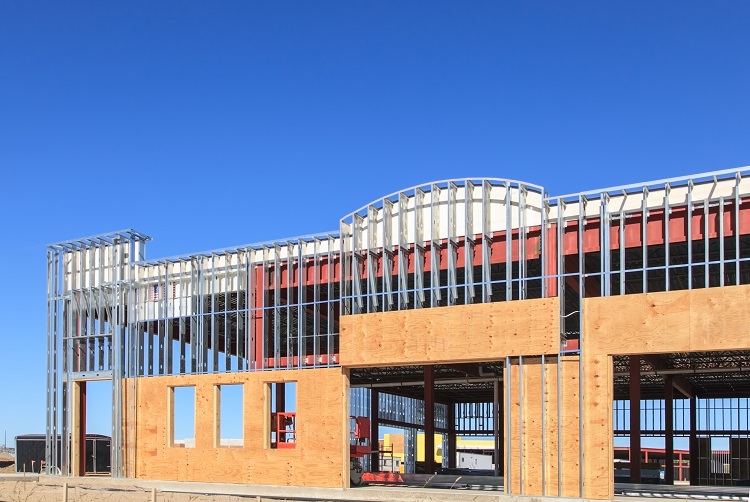Transitioning from Residential to Commercial Construction

During my 35 years in the construction industry—mostly in commercial construction—I’ve often been asked, “How difficult is commercial construction?” and “How do I get started in that side of the business?” Usually, these questions are asked by experienced residential contractors who are looking to expand their businesses. As I answer their questions, I’ve seen a variety of reactions. Some contractors become excited, while others express no interest.
Most residential contractors are very smart. They understand what plumb, straight, and true are. Their math abilities show well when cutting a set of stairs or a roof. They have to make sure the roof loads on a three-story are carried down to the foundation walls. Having the foresight to install the needed backing in the walls before drywall is also part of the job.
That is why commercial construction can come naturally to residential contractors. But, like any new adventure, seeking out a mentor who can provide advice and guidance is very important.
If you are a residential contractor who is contemplating going into commercial construction, here are 10 suggestions you should consider.
- Start out with projects you are comfortable with. If you do framing, you may want to start with interior light-gauge steel studs. If you are currently doing concrete, you may want to start doing flatwork and short walls.
- Hire an employee who has the skill set and experience you are looking to expand. That person can show you the tricks of the trade and help your business grow.
- Learn to read commercial blueprints and specifications, which are different than residential. This is a process from job to job. Master the symbols, elevations, and definitions.
- Gain an understanding of all trades with the proper sequence of task on the project. This is also a process from job to job. This understanding will give you a great advantage over your competition and help with your scheduling.
- Safety procedures and implementation may look different due to the nature of a commercial project. The general contractor may set additional guidelines and procedures for its subcontractors. Always have your safety program available and up to date.
- Commercial doors, frames, and hardware can be a specialty. Due to the complexity of hardware, some contractors will send an employee to classes to become a specialist in commercial hardware. This is often a worthwhile investment.
- A great tradesman understands the importance of using the correct fasteners. This cannot be overstated. It can make a job much more efficient. For example, if you install a new door closer on a steel door using the screws provided in the box, you have to drill and tap the hole to use those screws. With aftermarket self-drillers made for door closers, you can install four closers in the time it takes to install one with the screws.
- Attending larger trade shows can be time well spent. There is so much you can learn about your industry—and it is all in one place. Even many seasoned contractors attend to see the latest technology and make connections.
- Risk management is a high priority with any contractor. I encourage reviewing your business with an attorney who specializes in construction litigation on a yearly basis. Ask him or her prioritize the most important items to tackle. Allocate money each year for legal review. Consider it a part of conducting business.
- Many insurance carriers claim to be the insurance company for contractors because they write policies for contractors. Having an insurance carrier who understands the construction industry and your business can help make sure your risk is accurately evaluated and the proper coverage is provided. If the scope of your operations changes, you will need to have your insurance reviewed.
Commercial construction can be very profitable for a contractor. In my experience, general contractors who started out as subcontractors tend to self-perform more of the work on projects, which gives the general contractor more control of the job, less risk, and greater profits. Maybe that’s why some residential contractors get so excited when they hear about the opportunities in commercial construction.
An insurance company that cares about you and insuring the things you wish to be insured.
Get a Quote> Find an Agent>

